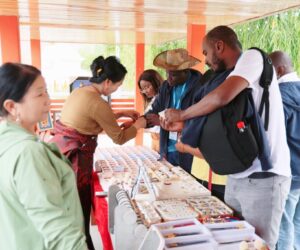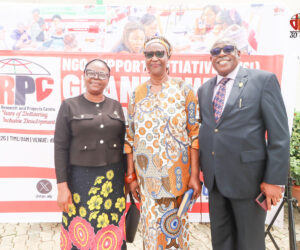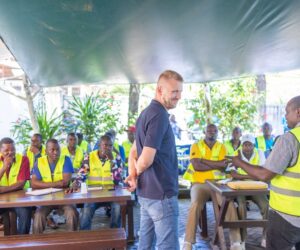By Oluwafunke Ishola, News Agency of Nigeria (NAN)
Africa’s debt crisis is having a devastating impact on vaccination efforts, leaving millions of people vulnerable to preventable diseases.
With debt-to-GDP ratios exceeding 65 per cent across sub-Saharan Africa, governments are struggling to balance debt servicing with essential health spending, including vaccination programmes.
In Kenya, for instance, vaccine procurement has been reduced by 22 per cent since 2024, creating immunity gaps that put lives at risk.
Vaccine-preventable diseases claim thousands of lives in Africa each year, with the continent losing an estimated $13 billion annually due to these diseases.
Every one billion dollar funding shortfall translates to approximately four million unvaccinated children and an estimated 200,000 preventable deaths.
As of 2024, 23 African countries were experiencing financial distress, and three had either defaulted or sought formal debt restructuring; together, African countries owe more than $1.8 trillion.
The reduction in vaccine procurement is particularly concerning, given that vaccine-preventable diseases such as measles, meningitis, and diphtheria can have devastating consequences, especially for children under five.
“We must ask ourselves what truly constitutes sustainable debt,” said Togo’s President Faure Gnassingbé. “Many African countries face competing pressures, servicing debt while addressing health, education, and security needs. Without peace, there can be no development.”
The Abuja Declaration of 2001, a pivotal commitment made by African Union (AU) member states, aimed to reverse this trend by pledging to allocate at least 15 per cent of national budgets to the health sector.
However, more than two decades later, only three countries—Rwanda, Botswana, and Cabo Verde—have consistently met or exceeded this target, according to WHO.
Recurring outbreaks of Mpox, Ebola, cholera, measles, alongside effects of climate change and humanitarian crises in Eastern DRC, the Sahel, and Sudan, are overwhelming systems stretched by chronic underfunding.
Despite the proven power of vaccines to save lives, over 500,000 children under five in Africa continue to die each year from preventable diseases, including measles, diphtheria, tetanus, polio, and whooping cough—diseases that have been nearly eradicated in much of the world.
Providing effective protection against these illnesses should be straightforward, yet across the continent, vaccination remains out of reach for millions.
Limited domestic health funding, low trust in vaccines, political instability, and the challenge of accessing remote communities all contribute to the problem.
Dr Adedeji Adeniran, Director of Research, Centre for the Study of the Economies of Africa (CSEA), noted that debt servicing reduces room for government health budgets and spending and pushes costs onto households.
Adeniran also pointed out that low government spending on health results in heavy reliance on external funding, foreign aid, and humanitarian assistance to address the country’s health needs.
“This heavy reliance on donor and external financing makes African health systems vulnerable when fiscal pressures mount.
“Debt distress and tighter global financing conditions like the elimination of the USAIDs, often complicate governments’ ability to meet counterpart or co-financing obligations for critical programmes such as immunisation, HIV, TB, and malaria.
“When treasuries are cash-strapped, these obligations are either delayed or unmet, raising the risk of service interruptions and threatening hard-won health gains,” Adeniran said.
Recommending countries to mitigate this negative impact by protecting health with programme-level spending floors; raising better domestic revenues (especially well-designed health taxes); tapping innovative instruments (debt-for-health, special drawing rights (SDRs) re-channelling via AfDB).
He further advised pooling procurement; and accelerating pre-payment social health insurance with primary healthcare at the core while tightening public financial management and efficiency inside the health sector.
Data from Africa CDC revealed that one in five children in Africa still lacks access to even a single routine vaccine, as a result, millions of children remain vulnerable to preventable diseases.
A vial of measles vaccine, for instance, costs only $2.85. Yet since 2018, 28 African countries have experienced large, disruptive measles outbreaks.
Countries like Nigeria, the Democratic Republic of Congo, and South Sudan continue to report high mortality rates from vaccine-preventable diseases due to inconsistent coverage.
Recent outbreaks in Somalia, Zimbabwe, Ethiopia, and ongoing cases of diphtheria and pertussis in Chad and Nigeria highlight the scale of the challenge.
Yet immunisation remains one of the most cost-effective health investments, with a return on investment of up to 37 times the cost.
“Vaccines have saved more than 150 million lives over the past five decades,” said WHO Director-General, Dr Tedros Adhanom Ghebreyesus.
“Funding cuts to global health have put these hard-won gains in jeopardy. Outbreaks of vaccine-preventable diseases are increasing around the world, putting lives at risk and exposing countries to increased costs in treating diseases and responding to outbreaks.
“Countries with limited resources must invest in the highest-impact interventions – and that includes vaccines,” Ghebreyesus said.
Prof. Oyewale Tomori, a Nigerian expert on global health argued that African countries need to reprioritise, eliminate wasteful spending, and transition from mere political will to genuine governance commitment, backed by sufficient funding and transparent accountability.
“Implementing a successful immunisation programme requires that we lower the cost of vaccines, by pooling procurement through agencies like the African Vaccine Acquisition Trust (AVAT) and using innovative financing mechanisms like Afreximbank’s Advanced Procurement Commitment (APC) and deferred payment plans.
“We must in addition, implement policy reforms such as tax earmarking for health initiatives, for example, Nigeria’s sugar tax on sweetened beverages, to fund health-related initiatives,” Tomori said.
Tomori also emphasised the need to address public concerns and build trust in vaccination programmes, urging governments to provide healthcare workers with a supportive environment, enabling them to work efficiently and safely.
He explained that several initiatives are in place to boost immunisation, including Gavi’s support in 40 countries and WHO’s efforts to scale up coverage through campaigns and integrating services.
Notably, UNICEF, WHO, and Gavi had emphasised the need for sustained investment in vaccines and immunisation programmes, urging countries to honour their commitments to the Immunisation Agenda 2030 (IA2030).
They submitted that immunisation is a ‘best buy’ in health with a return on investment of $54 for every dollar invested and provides a foundation for future prosperity and health security.
“Increasing outbreaks of highly infectious diseases are a concern for the whole world. The good news is we can fight back, and Gavi’s next strategic period has a clear plan to bolster our defences by expanding investments in global vaccine stockpiles and rolling out targeted preventive vaccination in countries most impacted by meningitis, yellow fever and measles,” said Dr Sania Nishtar, CEO of Gavi, the Vaccine Alliance.
Over the past 25 years, Gavi, has helped to immunise more than a billion children, meaning one-eighth of humanity has received a vaccine funded by Gavi.
Gavi’s strategic plans for the next five years is to immunise at least 500 million more children, save an additional eight to nine million lives, generate at least $250 billion in economic benefits for the countries it supports and boost global health security by responding to up to 150 disease outbreaks.
As African countries prepare their 2026 annual budgets, experts emphasised that prioritising health and immunisation is crucial to strengthen their health systems, reduce child mortality rates and protect their populations from vaccine-preventable diseases.
The experts submit that when more people are immunised, the risk of outbreaks decreases, overall health of the population improves, leading to a more productive workforce, better economic outcomes, and a brighter future for the continent.
They stressed that access to life-saving vaccines and healthcare services is essential for achieving sustainable development goals. (NANFeatures)
***If used, please credit the writer and the News Agency of Nigeria.








